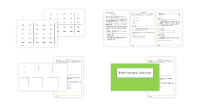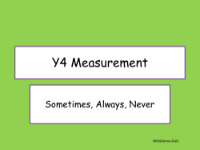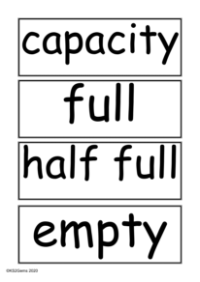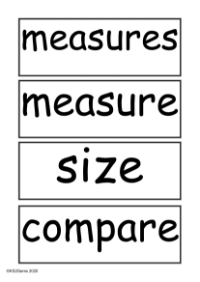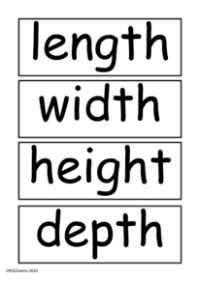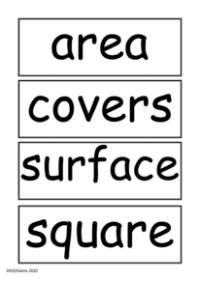Vocabulary - Measures: Mass
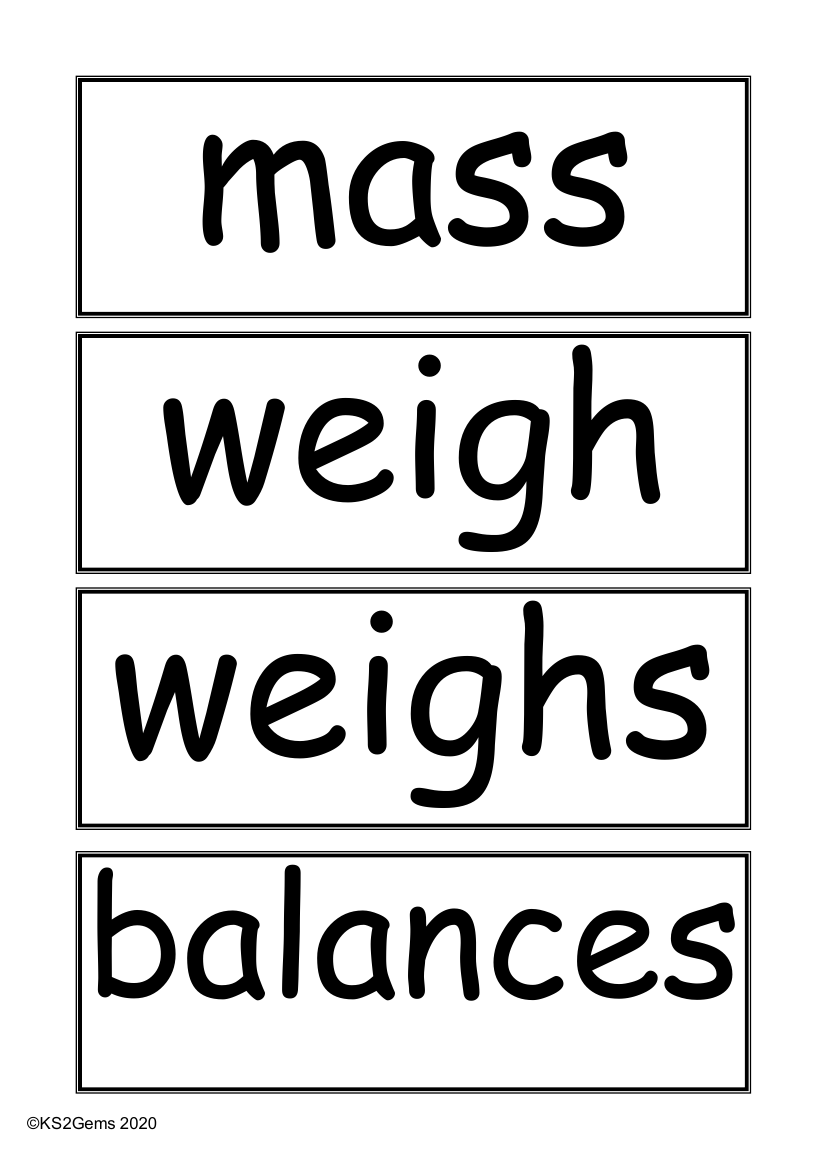
Maths Resource Description
In the realm of measurement, particularly when discussing mass, there are several key terms that students need to become familiar with. The term 'mass' refers to the amount of matter contained in an object, and it is a fundamental concept in science and everyday life. To measure mass, one might use the verb 'weigh', which is the action of determining the mass of an object using a scale. The result of this action is often expressed in units such as 'kilograms' (kg) or 'grams' (g), with a 'kilogram' being equivalent to one thousand grams and a common reference point for heavier objects, while a 'gram' is suitable for lighter items.
When comparing the mass of objects, descriptive terms like 'heavy' and 'light' are used, with 'heavier' and 'lighter' indicating relative differences in mass. Objects can also be ranked from 'heaviest' to 'lightest'. A 'half-kilogram' is a specific measure that denotes 500 grams. To facilitate the measurement of mass, devices such as 'balances' and 'scales' are utilised. A 'balance' is a tool that compares the mass of two objects, while 'scales' provide a direct reading of an object's weight. These terms are essential for understanding and communicating about mass, whether in a scientific context or in everyday situations where measuring and comparing weights is necessary.

